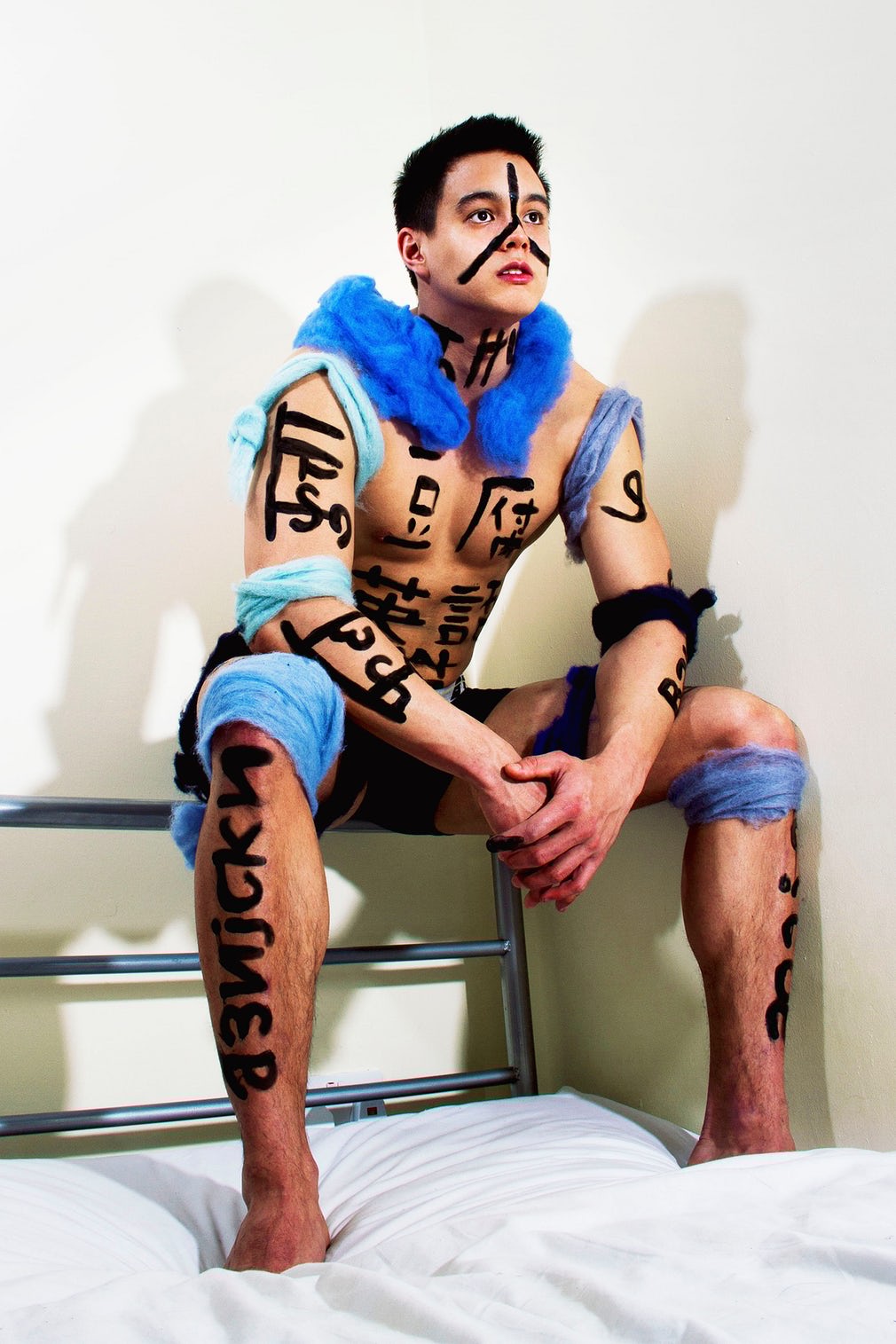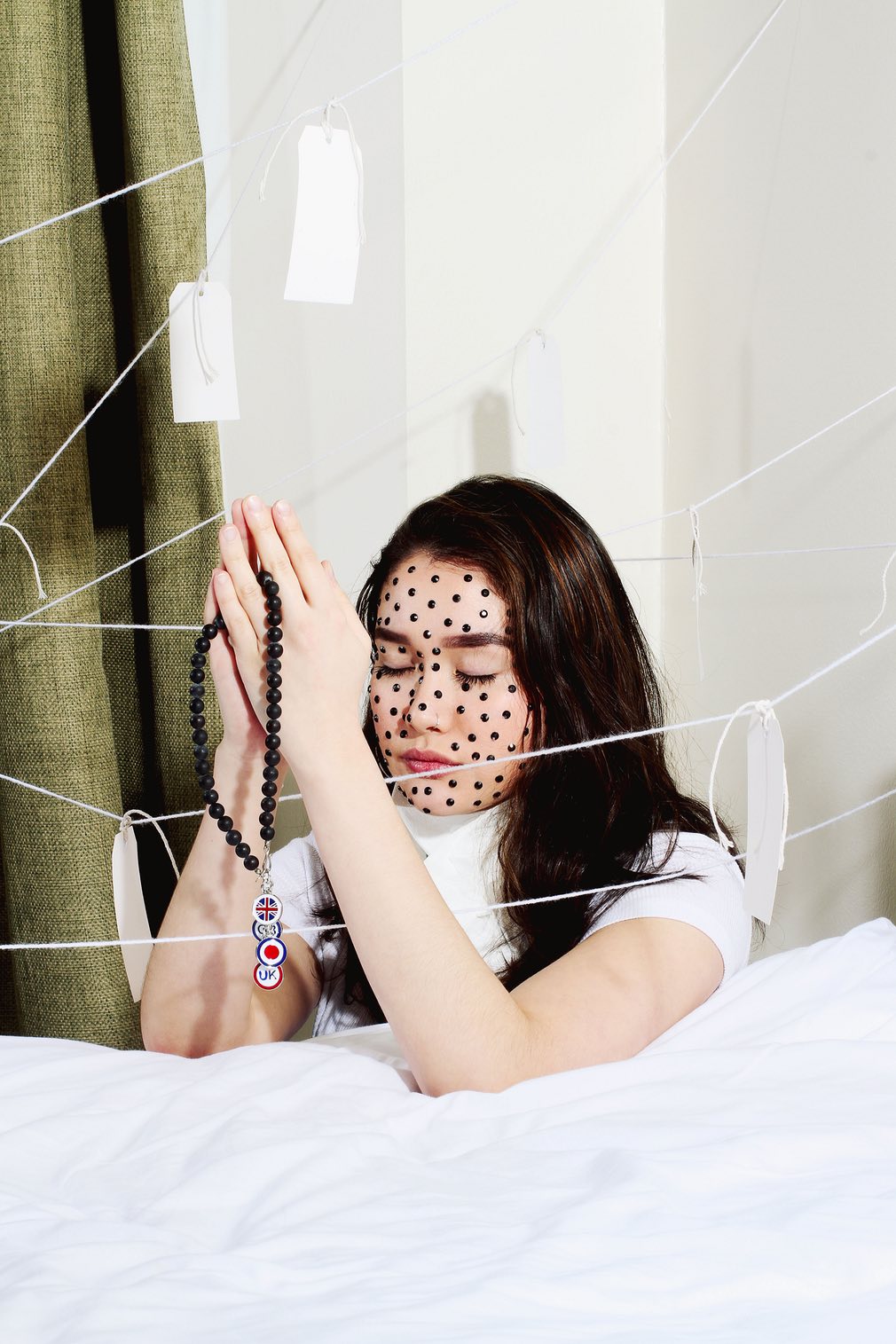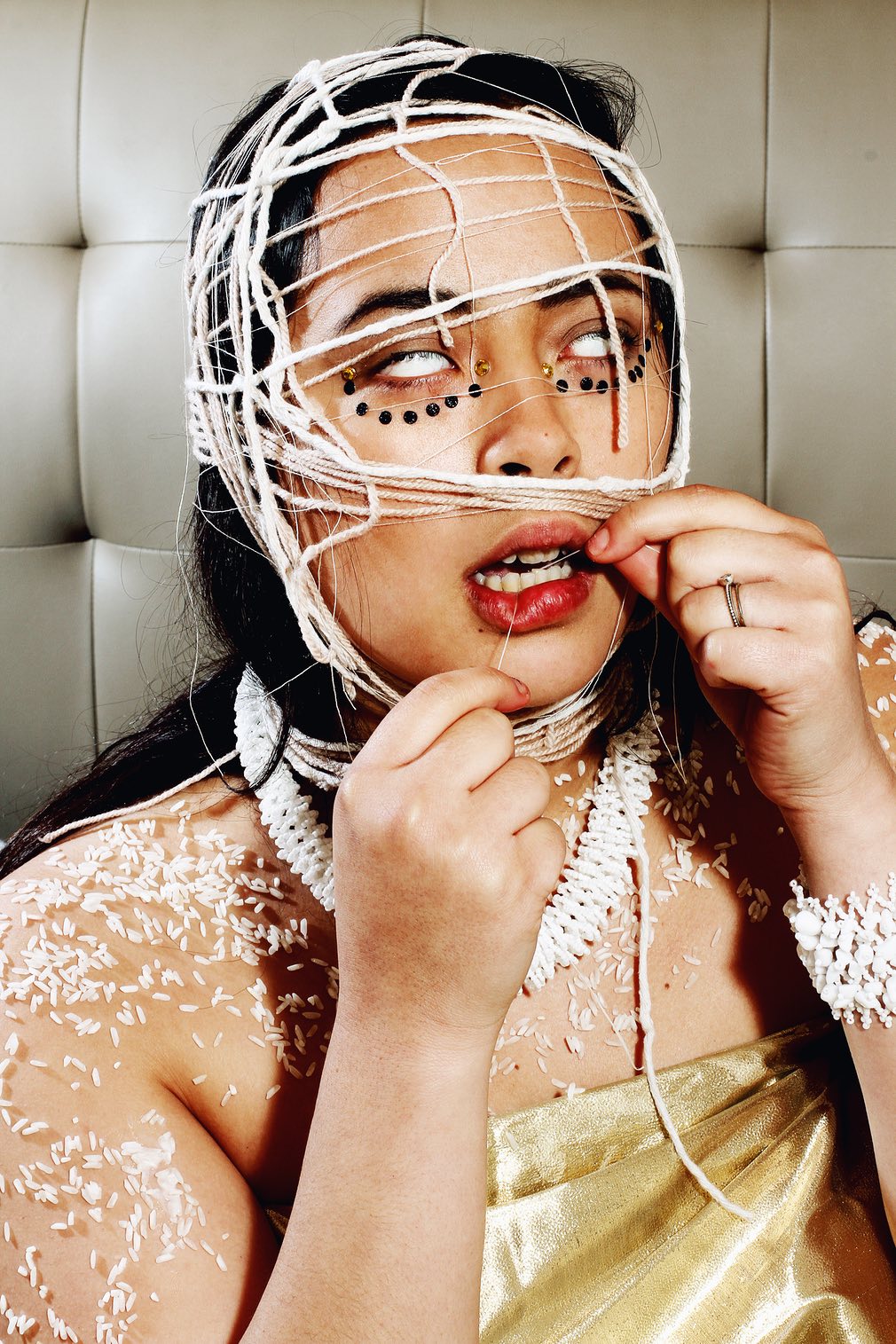Daniel Adams Explains Why His English Is So Good
 Thirsty for JUICE content? Quench your cravings on our Instagram, TikTok and WhatsApp
Thirsty for JUICE content? Quench your cravings on our Instagram, TikTok and WhatsApp
21-year-old conceptual fashion photographer, Daniel Adams got his big break when ‘Why Is Your English So Good?’ – a photography project for his final year at Falmouth University in England – blew up on social media via a feature on The Guardian. To those of us who’ve lived long enough to familiarise ourselves with our homeland’s rampant racism, we’d know that despite conscious and collective effort to be more socially aware, there’s still a lot to work on.
Far away from home, however, comes a similar tale but from a different perspective. Prior to graduation in July, Adams gathered all of his Malaysian friends who are either working or studying in the U.K. and Ireland to portray the casual racism they’ve faced into visual stories. The 15 images in this project are vivid, and the captions that accompany them give a taste of how some people view Asians, especially Malaysians when we’re abroad. It also raises the question – if they see us like this, then what can we do as a whole to fight off stereotypes, fetishisation and all the other crap we don’t want to deal with?
JUICE bounced back to Adams through an email conversation to know more about him and what he has to say about racism.

Who is Daniel Adams?
D Born and bred in Kuala Lumpur, I went to ELC International School for majority of my life and then switched over to Alice Smith International School to do my A Levels. I got into photography at an early age when I got my first camera and started taking photos of nearly anything from the typical cheesy tumblr ‘glasses on book in the middle of the road’ type images, which progressed to practicing shooting on my close friends. It kind of just blossomed from there as I never lost interest in the art and ended up getting a lot better as time progressed.
“This project is specific to attacks towards a certain race in a specific place however does not suggest that racism is isolated to this one area.”
What’s the story behind the title of your photography project “Why Is Your English So Good?”
D Basically this project aims to educate people on the issue at hand: racism and ignorance. This project is specific to attacks towards a certain race in a specific place however does not suggest that racism is isolated to this one area. I wanted to shed light on the racial slurs that are being thrown around as if they were normal. I feel that this topic isn’t as widely spoken about as it should be and therefore wanted to bring more attention to it.
Each photograph comes with a caption that screams racism. Do you think the photographs depict that well on their own or do you think that they need to be accompanied by the stories behind them?
D I wanted to create images that if stood alone, looked like they were your average fine art – conceptual images that could have any sort of interpretation by the audience. This allowed for it to not be too in your face and thus a lot more subtle. I wanted to address an important social issue along with keeping my own style. Therefore, for this project specifically, these images can’t stand alone as they won’t have as much of an impact to the audiences – as they wouldn’t know what the actual story is about without the text. The text gives the right amount of context to the viewer.

Going to the UK, facing racism is somewhat common and inevitable for students. Did you face racism back here in Malaysia?
D I personally have not faced any sort of racism at home, I feel like this comes from the fact that I’m Eurasian. My dad’s from London, so I don’t exactly look like your average Malaysian but I don’t look British either. I feel like people are generally confused so don’t aim any sort of racism towards me at home. However, it has been brought to my attention on many an occasion about the heavy amounts of racism that occurs in Malaysia. Many of my friends have experienced it and many of the people leaving comments on The Guardian or Star Newspaper articles have experienced it. I’ve received emails recently telling me about their own experiences. It makes me frustrated because I see Malaysia as such a strong community but the issue is still so prominent.
“My photography has become a lot more fashion orientated and a lot more politically charged.”
Before capturing topics like this recent one, what kind of photography themes did you start out with?
D I used to create very conceptual imagery towards the likes of artists such as Joel Robison and Rob Woodcox. However, over the past year and a half, my photography has become a lot more fashion orientated and a lot more politically charged. I feel like it’s definitely changed for the better and is starting to actually go somewhere.
This is a deep subject you’re covering. Have you ever had doubts or was hesitant to start the project out of fear that people would disagree with your art?
D No, not at all. I didn’t think that at all as prior to actually starting the project, my friends and I would always have discussions about the topic at hand anyway. After having so many discussions over the years, I decided to actually create a project surrounding the idea. There will always be negative feedback to every bit of work as art is subjective but I stand for my views.

We live in a digital age where good photography can be achieved with just a smartphone. As a photographer, what are your thoughts on this?
D I think it’s incredible! The fact that it’s so accessible to create imagery at the touch of a screen makes it a lot easier. I use my phone so much more than my actual camera nowadays only because I need a break from my camera every now and again and my phone camera is a more accessible escape.
“I had this obsession with that editing site, Picnik. I used these awful preset filters and vignettes that makes me feel ill when looking at it today.”
What did you start with when you first fell in love with photography?
D Looking back at the photos now, they were absolutely awful. I had this obsession with that editing site, Picnik. I used these awful preset filters and vignettes that makes me feel ill when looking at it today (laughs). It used to be absolutely anything and everything, I didn’t really care at that point because I was really happy I found something that I really enjoyed. I thought it was so fun to run around and find different objects around the house and condominium complex to photograph. That’s what I love about photography, anything goes.
Name us three photographers or artists that JUICE readers have to know about.
D Steven Klein, Evelyn Bencicova, Manuel Vason.

Out of all the subjects in life that you can capture through a lens, what do you think is the only thing that won’t translate well in photographs?
D Experience. Experience is personal to each person and you can’t really translate it properly into photographs.
You utilised very colourful props and paint in ‘Why Is Your English So Good?’, is that just something that you find aesthetically pleasing or is there more to it?
D I enjoy using vibrant colours in my images to provoke emotions from the viewers looking at the work. They are also used to express certain feelings, emotions or specific aspects of an event through the images. Apart from the emotional response that the colours exert, I find using colourful props and backgrounds very aesthetically pleasing. I love images that are busy and colourful as there’s so much to look at and take in (a bit like my room and my life in general – just a big explosion of colour).

“Hopefully I can try and start up a sort of sister project at home surrounding the same topic, tackling racism in Malaysia.”
What’s the next step for you?
D I’m moving back to Malaysia for 6 months after graduation this July. Hopefully I can try and start up a sort of sister project at home surrounding the same topic, tackling racism in Malaysia. However I do want to continue with the likes of this project as well when I return to London next year. Nothing is confirmed and I’m incredibly flexible at the moment so I’ll see what comes along in the next few months!
What’s a photography cliché you try to avoid?
D I’ve started to stray away from the photography I used to create because it became too cliché in a way. But I also try to stay away from the typical shots you’d see in a photo studio.
If you could go back in time and talk to yourself when you were a beginner, what advice would you give?
D Stop trying to play safe and literally go for it. I used to be really set along one path but I strayed away from it and it’s allowed me to experiment and explore so much more with photography and the ways I express myself.
To view the entire ‘Why Is Your English So Good?’ project, click here. More Design stories here.


 Get Audio+
Get Audio+ Hot FM
Hot FM Kool 101
Kool 101 Eight FM
Eight FM Fly FM
Fly FM Molek FM
Molek FM